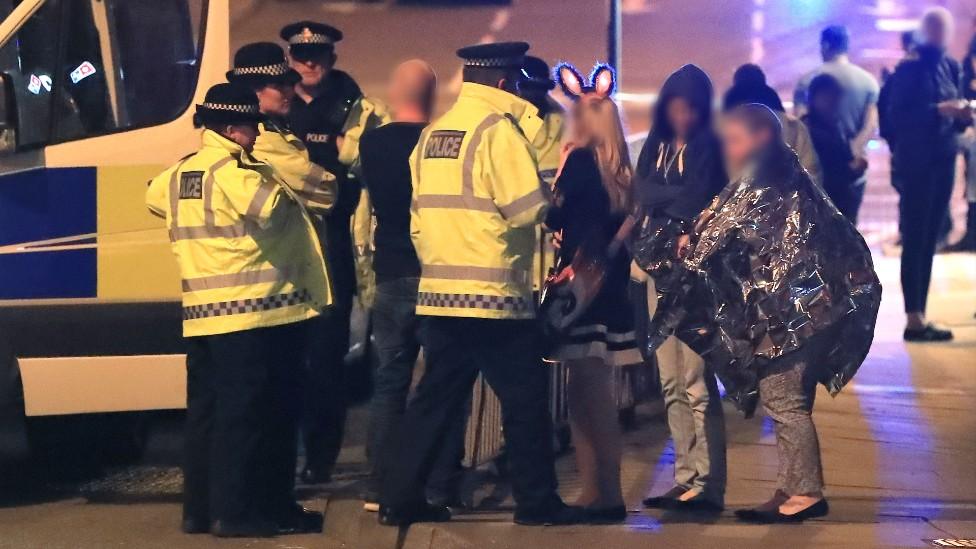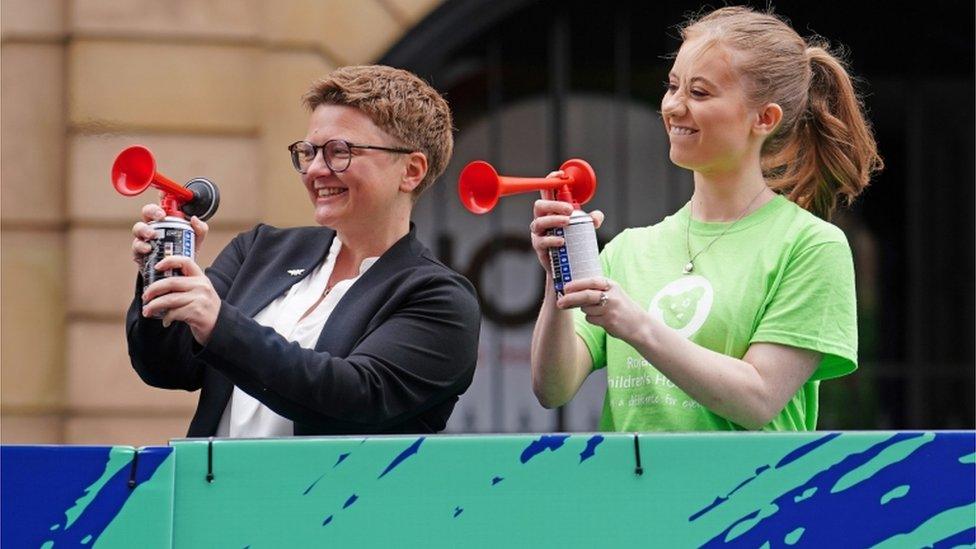Young Manchester Arena attack survivors asked to share stories to help others
- Published

Dr Hill said it was time to "make sure young people who experience similar events... get the best possible care"
Children affected by the Manchester Arena bombing have been asked to share their experiences of the support they received afterwards to help future survivors of similar attacks.
The online survey, external is part of a project to identify what support would be most beneficial to young survivors.
The project is being led by Dr Cath Hill, who survived the 2017 attack.
She said it was hoped it would ensure that attack survivors "get the best possible care".
Twenty-two people died and hundreds more were injured when a bomb was set off after an Ariana Grande concert at Manchester Arena on 22 May 2017.
'Provide insights'
Dr Hill, who is leading the Bee The Difference project and was also one of the founders of singing support group Manchester Survivors Choir, said young people affected by the Manchester attack "sought support in a range of places; their GP, counsellors, teachers, social groups and social media".
"Some of this was incredibly helpful, some of it missed the mark completely, while some measures taken inadvertently introduced more trauma," she said.
"Five years on, it's time to start to talk about this and make sure young people who experience similar events in the future get the best possible care."

Twenty-two people were killed in the suicide bomb attack on 22 May 2017
The project involves nine young Arena attack survivors, the National Emergencies Trust (NET) charity and researchers from Lancaster University.
Ellie Taylor, who was 15 when she was caught up in the Manchester attack, said it was "a chance to take something that changed our lives completely in a negative way and turn it into something positive for the future".
She said the questionnaire, which is open to anyone aged under 18 at the time whose lives were affected by the bombing, was not invasive or about "your personal story".
"It's just a few questions to find out what worked mentally for you, and what didn't help," she said.
Fellow survivor Ava Turner said it was "about saying our opinions are valid".
"They are extremely valid. They can't be hidden forever," she added.
NET's chief executive Mhairi Sharp said only people who have "lived through an act of terror can truly understand the needs of those affected, which is why this project gives a vital voice to young Manchester survivors".
She said the findings would "inform the way our charity gives financial gifts to those affected by terror attacks" and "provide insights to enable all areas of society to provide the best possible support".
The anonymised findings of the survey will be shared with various organisations including government, healthcare and education providers and other civic and charitable bodies later in the year.

Why not follow BBC North West on Facebook, external, Twitter, external and Instagram, external? You can also send story ideas to northwest.newsonline@bbc.co.uk, external
Related topics
- Published22 May 2022
